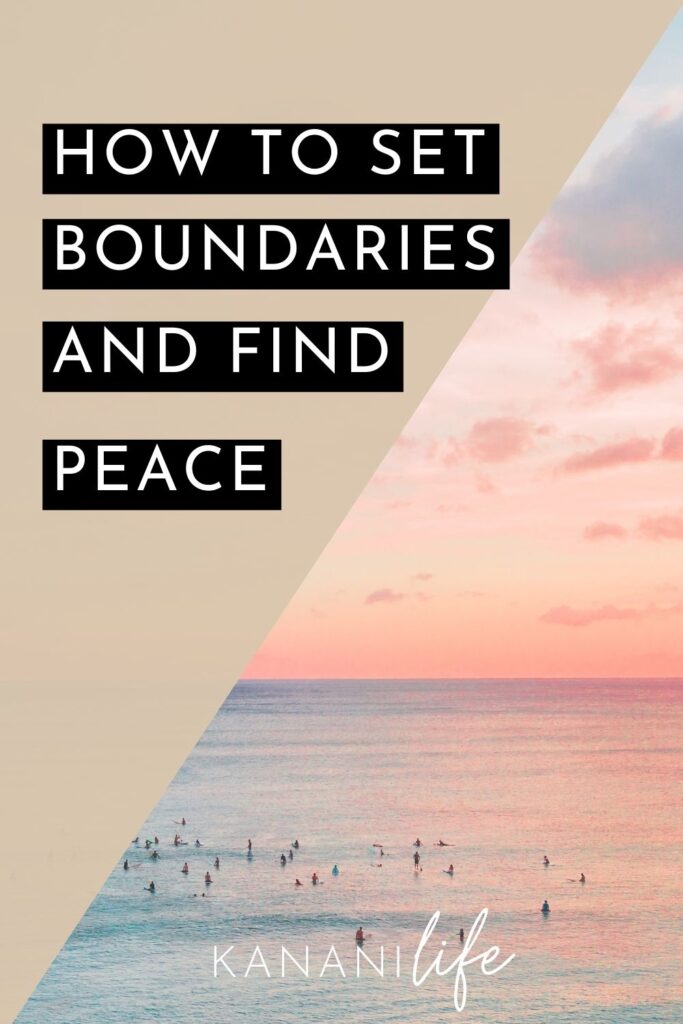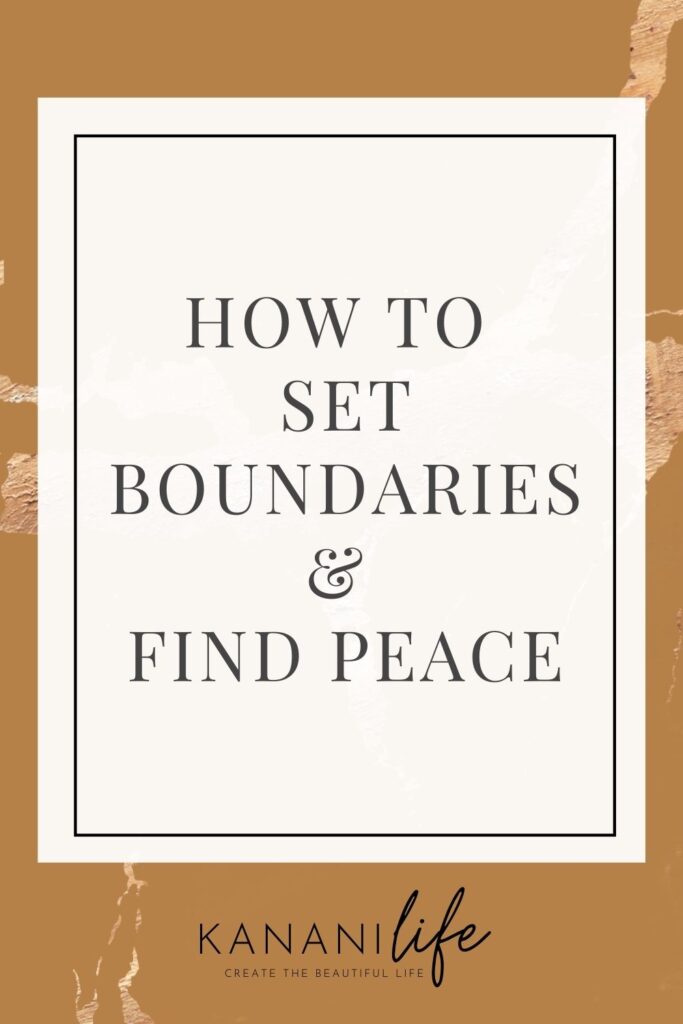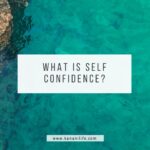
Do you need to set boundaries? Are you wanting more peace of mind? This article explores how to set boundaries and find peace. When you set boundaries, you take control of your time, energy, resources, and stresses.
Boundaries open a space for you to build your confidence, develop courage, and find peace. Naturally, it’s scary to set boundaries at first. This article will break down how to set boundaries, stick to them, and feel confident about them.
Let’s dive in!

Identify the problem
The first step to finding boundaries is to identify the problem.
Ask yourself questions like, “What’s stressing me out?” “Why do I feel this way? Is it because of certain people, situations, etc?”
You don’t have to know everything to set a boundary, but the more you can pinpoint what bothers you, and how it affects you, the easier it is to create. Furthermore, the more you know about yourself, it makes your “why” behind the boundary that much more valid.
For example, some people have sensitivity to loud noises, strong smells, and/or bright lights (hello highly sensitive people like me!). After being in sensory overload situations like this, the person might feel exhausted, get headaches, and drained.
So what’s the problem in this example? The problem is the overwhelming sensory experience. What kind of boundary could someone set with this? Avoid situations like this or spend only a very limited amount of time in it.
Another example… some people get triggered by certain personality traits. Especially if a person experienced trauma through a relationship with another, it’s easy to feel anxious, drained, or stressed out around personalities like those that caused the past trauma.
So what’s the problem? The problem is that a certain personality type or trait causes stress, anxiety, and triggers. What kind of boundary could someone set? Avoid situations with the people who have that personality trait, limit time with them, and/or work through personal trauma to overcome the triggers.
Sometimes you may find self limiting beliefs as you realize you need to set boundaries. Self limiting beliefs can hinder relationships. They can also cause us to set unhealthy boundaries, so be sure to work through these self limiting beliefs first.
Read more here: How to Overcome Self Limiting Beliefs

Have a strong WHY behind the boundary
After you identify the problem and set the boundary, please ensure that you have a strong “why.”
Your why will especially help you in situations that people will encourage or tempt you to break your boundary.
“It won’t be that long” or “It’s not that bad…” some people might say when you bring up your boundary.
If you know your why, you know what is and isn’t worth your time and energy.
A personal example
From personal experience, I used to give a lot of time to certain people. My sloppy and unclear boundaries were easily broken because I also didn’t justify my “why.” These certain people continually invited my husband and I to events. I’d say yes to them all, justifying the events or gatherings because of holidays, special occasions, and so forth.
But each time I’d feel more and more drained, depressed, unhappy, and exhausted. Sometimes I got physically sick from doing so much and giving to others.
Finally, I realized I had a people pleasing problem (check out the self limiting beliefs article to identify some of your false beliefs—it’s really interesting!). And just because I “set boundaries” didn’t mean I actually followed them. I broke them all the time because I didn’t have a solid “why.”
I had to go back to my boundaries, take a hard look at them, clarify, and reset them. And, of course, the “why” needed to be strong as ever. Do I still have a hard time with my boundaries? Yes, because of my false beliefs that I’m still working through. But do I follow through with my boundaries? Most of the time, yes. Because I remember my “why.”

Don’t budge (stay firm with your boundaries)
There’s a Hawaiian value called “kupa’a,” and it means to “stand firm” or “stand strong.”
Stand firm in your boundaries and don’t budge, even if people try to convince you otherwise. Remember your why, recall experiences that you broke your boundaries, and what resulted.
Something else that helps you stay firm is to know what you’re giving up when you say “yes” to breaking your boundaries.
Anytime you say “yes” to an activity, person, or event that takes your time, energy, or resources, you’re saying “no” to something else you could be doing.
Try to remember this when people question your boundaries.

Have confidence in your boundaries
Confidence comes from self belief, respect, and honor. So when you respect your boundaries, your confidence naturally grows. You know that your boundaries protect your health, safety, energy, and wellbeing.
Sometimes we might feel silly about our boundaries. Many of us have people-pleasing tendencies, making it harder to listen to ourselves. We want others to see or think of us in a certain way.
However, please remember that your opinion and God’s opinion are the only ones that matter. You know yourself best, and as you take steps to care for your health and wellbeing, you’re doing everyone a favor.
Taking care of yourself enables you to better care for and serve other people. So don’t be ashamed of your boundaries, no matter how big or small. They are valid.
Also read: How to not care what other people think

Find peace
Boundaries can give you peace of mind.
Especially for those who get anxious easily or feel stressed, burnt out, or overwhelmed, boundaries put you back in control.
When you’re in control of your time, energy, thoughts, and resources, you naturally feel more confident and at peace. Boundaries, though sometimes seeming like a restricting thing, give you freedom.
Who doesn’t want more of that?
Also read: Can you be confident and have anxiety?
In conclusion
Now that you’ve learned how to set boundaries, what will you do next? Is there something in your life that you need to change?
As you work through the steps in these articles and set healthy boundaries for yourself, you are putting your life back in control. Instead of letting circumstances and other people decide your schedule, energy, time, and resources, boundaries protect your wellbeing.
Don’t be afraid to ask yourself the difficult questions found in this article, and dig deep. Be honest with yourself and have courage in the boundaries that you set.
You got this!
What are your thoughts?
Do you set boundaries for your health and wellbeing? What are some tips you have for setting boundaries? We’d love to hear from you in the comments. Mahalo!
Save this pin for later!







